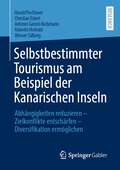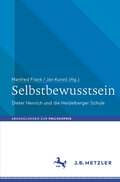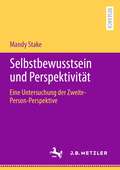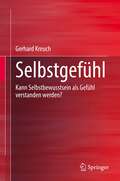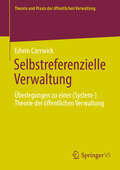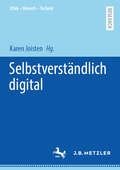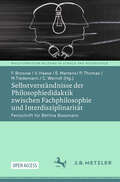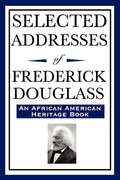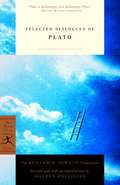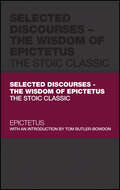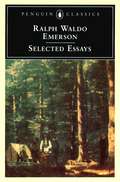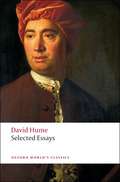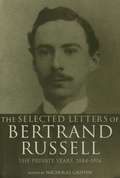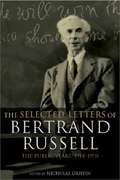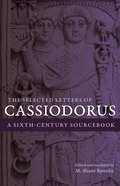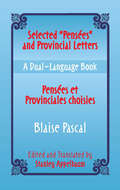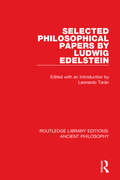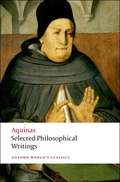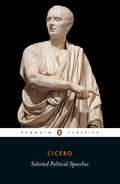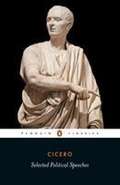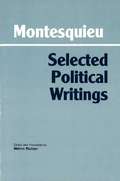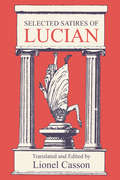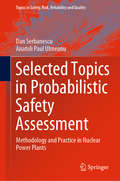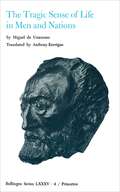- Table View
- List View
Selbstbestimmter Tourismus am Beispiel der Kanarischen Inseln: Abhängigkeiten reduzieren – Zielkonflikte entschärfen – Diversifikation ermöglichen
by Harald Pechlaner Christian Eckert Antonio Garzón Beckmann Valentin Herbold Werner SülbergDie Kanarischen Inseln, deren Topographie stets herausfordernd für eine wettbewerbsfähige Tourismusstrategie war, dienen als Fallstudie zur Transformation hin zu einem nachhaltigen Tourismusmodell samt den damit verbundenen strategischen Herausforderungen und Zielkonflikten. Als Spiegelbild der Entwicklung des Reisens in den europäischen Ländern stehen die Kanaren für sich verändernde Lebensstile der Quellmärkte sowie für die Entwicklung und den Wandel des Reiseveranstalterwesens. Selbstbestimmter Tourismus bedeutet, eine bewusste Entscheidung für Zukunftsszenarien der Inseln zu entwickeln und abgestimmt zu sein zwischen Unternehmertum, Politik und Wissenschaft, um gemeinsam mit den nationalen und internationalen Reiseunternehmen geeignete Strategien zum Wohle des gesamten Tourismus-Netzwerkes „Kanarische Inseln“ zu finden.
Selbstbewusstsein: Dieter Henrich und die Heidelberger Schule (Abhandlungen zur Philosophie)
by Manfred Frank Jan KunešDieter Henrich (*1927) ist neben Jürgen Habermas und Ernst Tugendhat die bedeutendste Stimme der deutschen Nachkriegsphilosophie. Mit seinen Beiträgen zu einer Theorie des Selbstbewusstseins hat er vor allem in den 1960er und 1970er Jahren dem herrschenden Antisubjektivismus der Heidegger-Gadamer-Tradition, aber auch der rein sprachphilosophischen Verengung der analytischen Philosophie kraftvoll widersprochen. Henrich ist der einzige lebende deutsche Philosoph, dem es in legendären-Vorlesungen (Harvard 1973) gelungen ist, die bedeutendsten Köpfe der dann bald „Philosophy of Mind“ genannten jüngsten Entwicklung der analytischen Philosophie für idealistische Theorien (vor allem für Fichte) zu interessieren. Der Sammelband bietet die erste und einzige Darstellung der Grundthesen Henrichs und der Heidelberger Schule, durchaus auch in kritischer Einstellung, und setzt das von Henrich eingeleitete Gespräch mit den amerikanischen Kollegen fort.
Selbstbewusstsein und Perspektivität: Eine Untersuchung der Zweite-Person-Perspektive
by Mandy StakeDiese Arbeit bespricht die Bedingungen von Selbstbewusstsein. Nach eingehender Kritik an bestehenden philosophischen und naturwissenschaftlichen Theorien wird ein eigenständiger Ansatz zur Akquise von Selbstbewusstsein entwickelt, der die besondere Bedeutung der Zweite-Person-Perspektive hervorhebt, ausführlich analysiert und in den aktuellen wissenschaftlichen Diskurs einbettet: Die hier entwickelte Theorie der umfassenden Perspektivität untersucht das Phänomen des Selbstbewusstseins sowohl philosophisch als auch in Bezug auf die mit der Erste-, Zweite-, und Dritte-Person-Perspektive verknüpften entwicklungspsychologischen Fähigkeiten. Von zentraler Bedeutung dafür sind die an aktuelle philosophische Debatten anschließenden Analysen der im deutschen und teils englischen Sprachraum bisher uneindeutig definierten Begriffe der Zweite-Person-Perspektive, Perspektive und joint attention. Die theoretischen Betrachtungen werden zum Schluss mit einem Blick auf Beispiele aus der angewandten Ethik überprüft und ergänzt.
Selbstgefühl: Kann Selbstbewusstsein als Gefühl verstanden werden?
by Gerhard KreuchDiese Monographie bietet neue Einblicke in die Verbindung zwischen Selbstbewusstsein und Emotion. Sie konzentriert sich auf die Frage, was uns die grundlegenden "Gefühle des Seins" über uns selbst sagen. Die Ergebnisse bereichern die Philosophie der menschlichen Affektivität und tragen dazu bei, ein neues Licht auf einige dringende, aktuelle Probleme zu werfen. Der Autor versucht, das Selbstbewusstsein als ein affektives Phänomen zu verstehen, nämlich als Selbstgefühl. Er identifiziert es als ein präreflexives, präpropositionales, körperliches Gefühl, das unseren Möglichkeitsraum formt. Es ist die affektive Offenlegung der individuellen Existenz. Seine Darstellung überwindet die Schwierigkeiten des unendlichen Regresses und der bösartigen Zirkularität, mit denen reflexive (oder übergeordnete) Darstellungen des Selbstbewusstseins zu kämpfen haben. Gleichzeitig hilft sie, eine Brücke zwischen der grundlegenden Ebene des Selbstbewusstseins und der höheren Ebene der substanzielleren Gedanken über sich selbst zu schlagen. Der Titel befasst sich mit grundlegender Affektivität, Matthew Ratcliffes Theorie der existentiellen Gefühle, Merkmalen des Selbstgefühls sowie Angemessenheit und Unangemessenheit in der Selbstinterpretation. Außerdem werden die Beiträge der Heidelberger Schule des Selbstbewusstseins zu den aktuellen Debatten erörtert. Der Titel bietet Studenten und Forschern einen einzigartigen Einblick in so wichtige philosophische Fragen wie: Was ist Selbst-Bewusstsein? Wie können wir uns selbst erkennen? Er wird auch ein breiteres Publikum ansprechen, das sich für das Selbstbewusstsein und/oder die menschliche Affektivität interessiert, da er keine Kenntnis des Fachjargons voraussetzt.
Selbstreferenzielle Verwaltung: Überlegungen zu einer (System-)Theorie der öffentlichen Verwaltung (Theorie und Praxis der öffentlichen Verwaltung)
by Edwin CzerwickIm Mittelpunkt des Buches steht die Konzeptualisierung der öffentlichen Verwaltung als ein selbstreferenzielles soziales System. Die allgemeinen theoretischen Grundlagen der Selbstreferenz als administratives Handlungsprinzip beruhen auf einer Synthese zwischen der soziologischen Systemtheorie, der Komplexitätstheorie und dem Funktionalismus. Wissenschaftstheoretisch findet die administrative Selbstreferenz im Radikalen Konstruktivismus mit seiner analytischen "Figur" des Beobachters ihre Begründung. Selbstreferenz lässt sich auf allen administrativen Ebenen und Bereichen in unterschiedlicher Ausprägung beobachten, wie z.B. im Gedächtnis, in der Kultur, im Zeitmanagement, in der Informationskonstruktion oder in der Kommunikation der Verwaltung. Die zentrale Bedeutung der selbstreferenziellen Operationen der Verwaltung besteht darin, dass sie als ein selbstreferenzielles soziales System nicht von ihren Umwelten gesteuert werden kann und sich mithin ihnen auch nicht anpassen muss. Vielmehr passt sich die Verwaltung ihre Umwelten gemäß ihren selbstreferenziellen Prämissen und Möglichkeiten an.
Selbstverständlich digital (Ethik – Mensch –Technik)
by Karen JoistenDer vorliegende Sammelband versammelt aus philosophischer und ethischer Perspektive unterschiedliche Beiträge, die sich mit dem Einfluss des Digitalen auf das Selbstverständnis des Menschen, seinen Umgang mit dem Mitmenschen und dessen Auswirkungen auf die Lebenswirklichkeit auseinandersetzen. Ziel der Beiträge ist es, das allzu Selbstverständliche angesichts der sich immer rasanter ausbreitenden digitalen Technologien kritisch zu hinterfragen und konstruktiv mit den Möglichkeiten und Herausforderungen des Digitalisierungsprozesses umzugehen. Die Beiträge rücken dabei häufig nicht nur theoretische Dimensionen, sondern auch konkrete Anwendungskontexte ins Zentrum ihrer Ausführungen.
Selbstverständnisse der Philosophiedidaktik zwischen Fachphilosophie und Interdisziplinarität: Festschrift für Bettina Bussmann (Philosophische Bildung in Schule und Hochschule)
by Frank Brosow Volker Haase Ekkehard Martens Philipp Thomas Markus Tiedemann Charlotte WerndlDieser Open Access-Band präsentiert die aktuellen Debatten über das Selbstverständnis der Philosophiedidaktik, ihre Beziehung zur Fachphilosophie und den Stellenwert bzw. das Wesen der Interdisziplinarität. Dies betrifft zum einen die Innenperspektive der Fachdidaktik selbst. Neben den klassischen Arbeitsfeldern auf der theoretisch-konzeptionellen, der methodisch-praktischen und der empirisch-kritischen Ebene entstehen immer neue Teilbereiche der Philosophiedidaktik. Gleichzeitig wachsen von Seiten der Fachphilosophie sowohl Wertschätzung als auch Erwartungshaltung bezüglich der Fachdidaktik. Die hieraus resultierenden Aushandlungsprozesse sind immer auch mit der Frage nach Interdisziplinarität und dem thematischen und methodischen Proprium der Philosophie bzw. der Philosophiedidaktik verbunden. War Philosophie schon immer inter- bzw. metadisziplinär? Sollte philosophische Bildung immer nach Interdisziplinarität streben, oder geraten methodische und thematische Spezifika auf diese Weise in Gefahr?
Selected Addresses of Frederick Douglass
by Frederick DouglassToday Frederick Douglass is best known for his autobiographies; but while he was alive, he was known as a fiery orator who was always in demand. Collected here are ten of Frederick Douglass' addresses. And while it is impossible to hear Frederick Douglass speak today, these addresses still manage to instill a sense of just how powerful and intelligent Douglass was. Included here are: The Meaning of July Fourth for the Negro, What the Black Man Wants, Appeal to Congress for Impartial Suffrage, The Color Line, The Future of the Colored Race, A Plea for Free Speech, The Church and Prejudice, Fighting Rebels with Only One Hand, The Negro Exodus from the Gulf States, and The Unconstitutionality of Slavery.
Selected Dialogues of Plato: The Benjamin Jowett Translation (Modern Library Classics)
by Plato Hayden PellicciaBenjamin Jowett's translations of Plato have long been classics in their own right. In this volume, Professor Hayden Pelliccia has revised Jowett's renderings of five key dialogues, giving us a modern Plato faithful to both Jowett's best features and Plato's own masterly style.Gathered here are many of Plato's liveliest and richest texts. Ion takes up the question of poetry and introduces the Socratic method. Protagoras discusses poetic interpretation and shows why cross-examination is the best way to get at the truth. Phaedrus takes on the nature of rhetoric, psychology, and love, as does the famous Symposium. Finally, Apology gives us Socrates' art of persuasion put to the ultimate test--defending his own life.Pelliccia's new Introduction to this volume clarifies its contents and addresses the challenges of translating Plato freshly and accurately. In its combination of accessibility and depth, Selected Dialogues of Plato is the ideal introduction to one of the key thinkers of all time.From the Hardcover edition.
Selected Discourses - The Wisdom of Epictetus: The Stoic Classic (Capstone Classics)
by Epictetus Tom Butler-BowdonExplore the ancient Stoic way of thinking and the valuable lessons it holds for contemporary life This new volume contains the Enchiridion and selected Discourses of the great Stoic philosopher Epictetus, who believed that moral philosophy should be a practical guide to leading a better life. His works offer timeless instruction on how to live authentically, “in accordance with nature”. Like other prominent Stoic thinkers Seneca and Marcus Aurelius, Epictetus teaches us to attain self-mastery through the use of reason and virtuous living. In this striking addition to the Capstone Classics series, you can discover—or rediscover—the renowned Greek philosopher's guide to living the best life possible. Epictetus teaches that personal power and peace of mind are your birthright. Epictetus focused on maintaining discipline in matters that are under our control, and letting go of matters that are not. The key to improving oneself is to learn what is ‘in one's power’, not judging as good or bad anything over which we have no sway. In this remarkably simple yet transformative worldview, we gain peace of mind and have a greater impact on the world. Discover the practical moral philosophy of Epictetus, renowned Greek philosopher in the Stoic tradition Gain solace and peace of mind from the Stoic message of letting go of what we cannot control Learn the key messages of Epictetus in a new edition introduced by personal development author Tom Butler-Bowdon Gain the keys to a virtuous, productive, and happy life Whether you are formally studying philosophy or pursuing your own personal development, Selected Discourses - The Wisdom of Epictetus will make an excellent addition to your library.
Selected Essays
by Ralph Waldo EmersonContains a selection from the essays Johnson published twice weekly as The Rambler in the early 1750s. <P><P>It was here that he first created the literary character and forged the distinctive prose style that established him as a public figure. <P>This volume also includes Johnson's essays from the periodicals The Adventurer and The Idler.
Selected Essays
by David HumeDavid Hume has set out to bridge the gap between the learned world of the academy and the marketplace of polite society. The essays illustrates social, cultural, political, and historical concerns of the mid-eighteenth century.
The Selected Letters of Bertrand Russell, Volume 1: The Private Years 1884-1914
by Nicholas GriffinThose who knew the famous philosopher Bertrand Russell at the turn of the century referred to him as 'the Day of Judgement'. This acclaimed selection of his early letters, available in paperback for the first time, reveals the full scope of Russell's life and innermost thoughts up to the First World War. It includes letters to his first wife, Alys Pearsall Smith, reveals the background to his now famous work in philosophy and the foundations of mathematics and how his mind was stirred by socialism, free trade and votes for women. It also contains letters on his famous affair with Ottoline Morrell, providing yet another insight into one of the great intellectual figures of the twentieth century.
The Selected Letters of Bertrand Russell, Volume 2: The Public Years 1914-1970
by Nicholas GriffinThis long-awaited second volume of Russell's best letters reveals the inner workings of a philosophical genius and an impassioned campaigner for peace and social reform. The letters, only three of which have been published before, cover most of Russell's adult life, a period in which he wrote over thirty books, including his famous History of Western Philosophy. Richly illustrated with photographs from Russell's life, the collection includes letters to Ho Chi Minh, Tito, Jawaharlal Nehru and Albert Einstein.
The Selected Letters of Cassiodorus: A Sixth-Century Sourcebook
by CassiodorusOne of the great Christian scholars of antiquity and a high-ranking public official under Theoderic, King of the Ostrogoths, Cassiodorus compiled edicts, diplomatic letters, and legal documents while in office. The collection of his writings, the Variae, remains among the most important sources for the sixth century, the period during which late antiquity transitioned to the early middle ages. Translated and selected by scholar M. Shane Bjornlie, The Selected Letters gathers the most interesting evidence from the Veriae for understanding the political culture, legal structure, intellectual and religious worldviews, and social evolution during the twilight of the late-Roman state. Bjornlie’s invaluable introduction discusses Cassiodorus’s work in civil, legal, and financial administration, revealing his interactions with emperors, kings, bishops, military commanders, private citizens, and even criminals. Section notes introduce each letter to contextualize its themes and connection with other letters, opening a window to Cassiodorus’s world.
Selected "Pensees" and Provincial Letters/Pensees et Provinciales choisies: A Dual-Language Book
by Blaise Pascal Stanley AppelbaumIntended to convert religiously indifferent readers to Christianity, Pensées were published posthumously, to wide and ongoing acclaim. This selection of highlights focuses on their secular aspects. Written in support of the Jansenist movement, Provincial Letters captivated a large audience with their satirical wit, righteous indignation, and effervescent style. This is the only dual-language edition available.
Selected Philosophical Papers by Ludwig Edelstein (Routledge Library Editions: Ancient Philosophy)
by Leonardo TaránLudwig Edelstein (1902-1965) is well-known for his work on the history of anceint medicine and ancient philosophy, and to both of these areas he made contributions of primary importance. This collection, originally published in 1987, makes avaialable Edelstein’s main papers to scholars and students, and includes papers from 1931-1965.
Selected Philosophical Writings of Thomas Aquinas
by Timothy McdermottSt. Thomas Aquinas (1225-1274) saw religion as part of the natural human inclination to worship. This translation offers thirty-eight substantial passages, fully illustrating the breadth and progression of Aquinas's philosophy.
Selected Political Speeches
by CiceroAmid the corruption and power struggles of the collapse of the Roman Republic, Cicero (106-43BC) produced some of the most stirring and eloquent speeches in history. A statesman and lawyer, he was one of the only outsiders to penetrate the aristocratic circles that controlled the Roman state, and became renowned for his speaking to the Assembly, Senate and courtrooms. Whether fighting corruption, quashing the Catiline conspiracy, defending the poet Archias or railing against Mark Antony in the Philippics - the magnificent arguments in defence of liberty which led to his banishment and death - Cicero's speeches are oratory masterpieces, vividly evocative of the cut and thrust of Roman political life.
Selected Political Speeches of Cicero
by Michael GrantCicero's political speeches remain immensely important for a variety of reasons. They are a mine of information about one of the most significant periods in the history of the world. They are transcripts of the most successful and persuasive oratory ever delivered, belonging to an age when oratory was the major activity of civil life and the nucleus of the educational system. They help to reveal the man who was this preeminent orator and who also played a prominent part in the seething, ominous political scene, a person of extraordinary character whom we are able to get to know intimately. Moreover, his works have continued to exercise a decisive influence on the minds of men throughout the intervening ages.
Selected Political Writings (Hackett Classics)
by Melvin Richter MontesquieuThis volume makes available in modern English the most significant parts of Montesquieu's political, social, and legal theory.
Selected Satires of Lucian
by Lionel CassonThe unsurpassed satirist of the ancient era was a young Syrian named Lucian, who, writing in Greek in the second century a.d., combined wit, irony, fearless candor, and exuberant comic fantasy to create the triumphantly irreverent dialogues and stories contained in this book. His genial mockery, aimed at man's omnipresent feelings, has never gone out of date. The jabs he gave the hypocrites; grandstanders, fakers and boobs of the ancient world can just as appropriately be administered to their counterparts in the modern world.Lucian's most typical genre is a parody of a Platonic dialogue, in which Zeus, Hermes, Eros, and other Olympians jabber in undivine harassment as some clever mortal (who very much resembles Lucian) is about to make scandalous fools of them. He also excelled at straight narrative, his two most famous tales being the elaborate science fiction spoof; "A True Story," and an old folk tale retold outrageously, "Lucius the Ass." His works were the product of an unrelentingly rational and skeptical mind, and have had an incalculable effect on writers and painters through the ages.Until this volume, the English language reader of today to appreciate the importance and intelligence of Lucian. No volume of representative selections in translation is in print. There are satisfactory versions of the complete works, but the reader who takes this long will most likely lose a good deal of the sting of Lucian's needle. Lionel Cassen also illustrates the full range of Lucian's subject matter and various literary forms and when translating tried to focus on the Greek spirit as opposed to the literal meaning.
Selected Topics in Probabilistic Safety Assessment: Methodology and Practice in Nuclear Power Plants (Topics in Safety, Risk, Reliability and Quality #38)
by Dan Serbanescu Anatoli Paul UlmeanuProbabilistic Safety Assessment (PSA) is a structured, comprehensive, and logical analysis method aimed at identifying and assessing risks in complex technological systems, such as the nuclear power plants. It is also known as probabilistic risk assessment – PRA. This book presents the theoretical basis to understand the numerous and complex aspects that are covered by PSA and it will help the reader to better understand and to effectively manage risks. The book provides PSA methods and techniques and it includes recommended procedures that are based on the experience of the authors and applicable to different levels and types of PSA that are used for nuclear power plants applications. It can be used as extra reading for PSA courses for practitioners and it provides quantitative risk methodology documentation for PSA.
Selected Works of Miguel de Unamuno, Volume 4: The Tragic Sense of Life in Men and Nations (Selected Works of Miguel de Unamuno #1)
by Miguel de UnamunoThe acknowledged masterpiece of Unamuno expresses the anguish of modern man as he is caught up in the struggle between the dictates of reason and the demands of his own heart.
